94. According to Manuscript E there
were 6 days needed in order to load the canoe before he could
leave Hiva and sail to Easter Island.
... For six days (po ono), mats (moenga) were
taken on board the canoe (i.e., the loading of the canoe took
six days). Hotu's canoe [te miro. o Hotu] sailed [he
oho] from Maori to Te Pito O Te Kainga. It sailed on the
second day of September (hora nui) ... [E:74]
Possibly this was an allusion to
the distance from *314 to *320; → 314 - 74 = 240.
|
Egyptian
flail |
 |
Phoenician lamed |
 |
Greek
psi |
Ψ (ψ) |
|
Wikipedia: In writing, the
early letter appears in an angular shape ( ).
There were early graphical variants that
omitted the stem, 'chickenfoot-shaped psi',
as: ).
There were early graphical variants that
omitted the stem, 'chickenfoot-shaped psi',
as:
 or
or

In later research it was
postulated that the [Phoenician] alphabet is
actually two complete lists, the first
dealing with land agriculture and activity,
and the second dealing with water, sea and
fishing.
The first half
beginning with Alef - an ox, and
ending with Lamed - a whip. The
second list begins with Mem - water,
and continues with Nun - fish,
Samek - fish bones, Ayin - a
water spring, Peh - the mouth of a
well, Tsadi - to fish, Kof,
Resh and Shin are the hook hole,
hook head and hook teeth, known to exist
from prehistoric times, and the Tav
is the mark used to count the fish caught.
The Crook and
Flail were instruments of the Pharaoh:
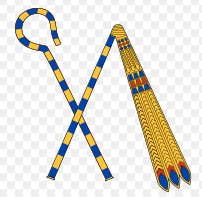 |
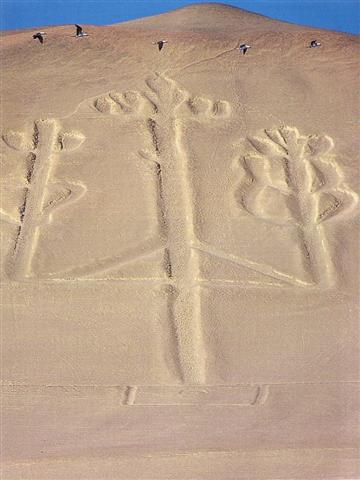
|
NOV 25 (329
→
305 + 24) |
26 (*250) |
27 (366 - 35) |
 |
 |
 |
|
249 → 3 * 83 |
250 → 5 * 5 |
|
|
Gb1-20 (249) |
Gb1-21 (→ 121
→ Beltane) |
Gb1-22 |
|
μ²,
μ¹
Oct. (313.2),
DENEB CYGNI (Tail of the Swan) = α Cygni
(313.5),
β
Pavonis (313.6),
δ
Delphini (313.8) |
Al Sa’d al Bula'-21 (Good Fortune of the
Swallower) /
Dhanishta-24 (Most Famous)
/
Girl-10 (Bat)
YUE (Battle-Axe)
=
Ψ
Capricorni
(314.3),
GIENAH CYGNI =
ε
Cygni,
η
Cephei (314.5),
γ
Delphini (314.6),
σ
Pavonis (314.7),
ALBALI =
ε
Aquarii
(314.8)
BETELGEUZE (α Orionis) |
BATEN ALGIEDI (Belly of the Goat) = ω Capricorni
(315.8) |

... ε,
3.4, was Al Bali, the brightest one of
the 21st manzil, Al Sa'd al Bula', the
Good Fortune of the Swallower, which included
μ and ν;
these last also known as Al Buläān in the
dual. Kazwini said
that this strange title came from the fact that
the two outside stars were more open than
α and β
of Capricorn, so that they seemed to swallow, or
absorb, the light of the other! ...
"The corresponding sieu, Mo, Mu, Niu, Nü,
or Woo Neu, a Woman, anciently written Nok, was
composed of these stars with the addition of
another, unidentified, ε being the determinant;
and the same three were the Euphratean lunar
asterism Munaχa, the Goat-fish, and the Coptic
Upeuritos, the Discoverer ..." (Allen) |
|
Jan 28 (393) |
29 (*314) |
30 |
|
°Jan 24 (389) |
25 (*310) |
26 |
|
'Jan 1 (366) |
2 |
3 (*288) |
|
"Dec 18 |
19
(*273) |
20 (354) |
|
... And then the bone spoke;
it was there in the fork of the tree: Why do you
want a mere bone, a round thing in the branches
of a tree? said the head of One Hunaphu when it
spoke to the maiden. You don't want it, she was
told. I do want it, said the maiden. Very well.
Stretch out your right hand here, so I can see
it, said the bone. Yes, said the maiden. She
stretched out her right hand, up there in front
of the bone. And then the bone spit out its
saliva, which landed squarely in the hand of the
maiden. And then she looked in her hand, she
inspected it right away, but the bone's saliva
wasn't in her hand. It is just a sign I have
given you, my saliva, my spittle. This, my head,
has nothing on it - just bone, nothing of meat.
It's just the same with the head of a great
lord: it's just the flesh that makes his face
look good. And when he dies, people get
frightened by his bones. After that, his son is
like his saliva, his spittle, in his being,
whether it be the son of a lord or the son of a
craftsman, an orator. The father does not
disappear, but goes on being fulfilled. Neither
dimmed nor destroyed is the face of a lord, a
warrior, craftsman, an orator. Rather, he will
leave his daughters and sons. So it is that I
have done likewise through you. Now go up there
on the face of the earth; you will not die. Keep
the word. So be it, said the head of One and
Seven Hunaphu - they were of one mind when they
did it ...
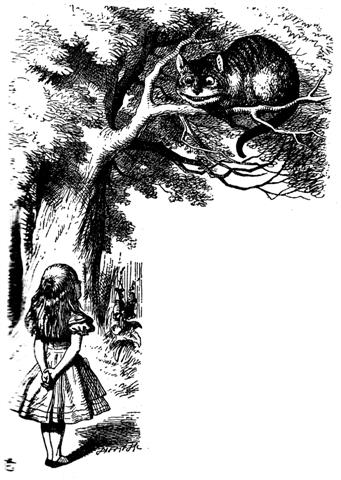 |

... The
jaguar learned from the
grasshopper that the toad
and the rabbit had
stolen its fire while it
was out hunting, and that
they had taken it across the
river. While the jaguar was
weeping at this, an anteater
came along, and the jaguar
suggested that they should
have an excretory
competition. The anteater,
however, appropriated the
excrement containing raw
meat and made the jaguar
believe that its own
excretions consisted
entirely of ants. In order
to even things out, the
jaguar invited the anteater
to a
juggling contest, using
their eyes removed from the
sockets: the anteater's eyes
fell back into place, but
the jaguar's remained
hanging at the top of a
tree, and so it became
blind. At the request of the
anteater, the macuco bird
made the jaguar new eyes out
of water, and these allowed
it to see in the dark. Since
that time the jaguar only
goes out at night. Having
lost fire, it eats meat raw.
It never attacks the macuco
- in the Apapocuva version,
the inhambu bird, also one
of the Tinamidae ...
|
.*4 |
 |
 |
|
Gb1-26
(355
-
100) |
Gb2-1 (216
+ 40
= 256
→
8
*
32) |
|
PLACE
OF
THE
SUN |
|
21h
(319.6)
→
137.0
+
365.25
/ 2
=
319.6
ARMUS
= η
Capricorni
(319.0),
DORSUM
= θ
Capricorni
(319.3),
TSOO
= 24
Capricorni
(319.7) |
DRAMASA =
σ
Oct.,
χ Capricorni
(320.0),
ν
Aquarii
(320.3),
γ
Equulei (320.6),
ο
Pavonis (320.8) |
|
Febr
3
(399) |
4 (400
-
365
= 35) |
|
°Jan
30
(*315) |
31 (396) |
|
'Jan
7
(*292) |
8 (373) |
|
CHRISTMAS
EVE
(*278) |
"Dec 25 (359) |
|
DEC
1
(355
-
20) |
2 (336
→ 4
* 84) |
|
... only at the
evening of the solstitial days can spirits enter heaven, the
inhabitants of the northern parts of the island at one solstice,
the dwellers in the south at the other ...
According to the Julian calendar the spring
equinox was at day 84 ('March 25) and therefore we should
understand the corresponding winter solstice to be at 'December
25. 359 + (41 - 27) = 373 → 'January 8. |
|
THE NAKSHATRA
VIEW: |
|
9h
(137.0)
σ¹
Ursa
Majoris
(137.0),
κ
Cancri
(137.3),
τ
Cancri
(137.4),
ALSUHAIL
(al
Wazn,
of
the
Weight)
=
λ in
the
Vela
(Sail)
a part
of
Argo
Navis
(137.5),
σ²
Ursa
Majoris
(137.6),
τ
Ursa
Majoris
(137.7),
ξ
Cancri
(137.8)
*96.0
=
*137.4
-
*41.4 |
κ
in
the
Pyxidis
(Mariner's
Compass)
a part
of Argo
Navis
(138.0),
ε
(138.5) |
|
Aug
5 |
6
(218
=
400
-
182) |
|
"June
25
(217
-
41) |
26
(177
= 6
*
29½)
|
|
JUNE
2
(153
=
176
-
23) |
3
(218
-
64) |
 |
 |
|
Ga3-13 |
Ga3-14
(73
=
256
-
183) |
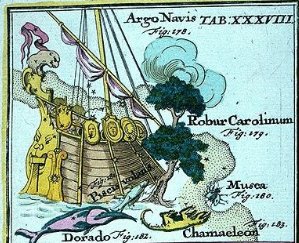
... According to a variety of
sources of the legend, the Argo was said to
have been planned or constructed with the help of
Athena. According to other legends it contained
in its prow a magical piece of timber from the
sacred forest of Dodona, which could speak
and render prophecies. Argo Navis is the only
one of the 48 constellations listed by the 2nd
century astronomer Ptolemy that is no longer
officially recognised as a constellation. It was
unwieldy due to its enormous size: were it still
considered a single constellation, it would be the
largest of all. In 1752, the French astronomer
Nicolas Louis de Lacaille subdivided it into
Carina (the keel, or the hull, of the ship),
Puppis (the poop deck), and Vela (the
sails). When Argo Navis was split, its Bayer
designations were also split. Carina has the
α, β
and ε, Vela has
γ and δ,
Puppis has ζ, and
so on. The constellation Pyxis (the mariner's
compass) occupies an area which in antiquity was
considered part of Argo's mast (called
Malus).
However, Pyxis is not now considered part of
Argo Navis, and its Bayer designations are
separate from those of Carina, Puppis
and Vela ... |
In my old
astronomy book there is a
gap between ρ at π
|
Sumerian SAG |
 |
Phoenician resh |
 |
Greek rho |
Ρ
(ρ) |
|
...
Resh (Arabic:
rāۥ)
is the twentieth
letter of many
Semitic alphabets,
including
Phoenician, Aramaic,
Hebrew ... The word
resh is
usually assumed to
have come from a
pictogram of a head,
ultimately
reflecting
Proto-Semitic *raۥ(i)š-.
The word's East
Semitic cognate,
rēš-, was one
possible phonetic
reading of the
Sumerian cuneiform
sign for 'head'
(SAG).
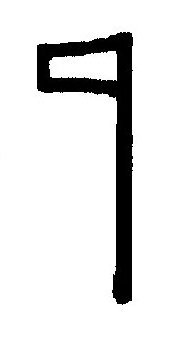
.jpg)
... Then I become
aware of ... a
presence - a faint,
ghostly glimmering,
like moonglow, that
has appeared on the
solstice stone. I
don't know how long
it lasts, a second
or two only I would
guess, but while it
is there it seems
less like a
projection - which I
know it to be - than
something immanent
within the stone
itself. And it seems
to function as a
herald for it fades
almost as soon as it
has appeared and in
its place the full
effect snaps on -
instantaneously. It
wasn't there, and
then it's there. As
Chris had described,
the effect does
curiously resemble a
poleaxe, or a flag
on a pole, and
consists of a
'shaft', narrow at
the base but
widening a little
towards the top,
running up the left
hand side of the
solstice stone,
surmounted by a
right-facing 'head'
or 'flag'. An
instant later an
almond-shaped spot
of light, like an
eye, appears a few
centimeters to the
right of the 'flag'
and the effect is
complete. Weirdly -
I do not claim it
has any significance
- this
flag-on-a-pole
symbol is the
ancient Egyptian
hieroglyph neter,
meaning 'god', or 'a
god' - and not to be
understood at all in
the Judaeo-Christian
usage of that word
but rather as a
reference to one of
the supernatural
powers or principles
that guide and
balance the
universe. Manifested
here, in this
strange Stone Age
temple, it glows, as
though lit by inner
fire ...
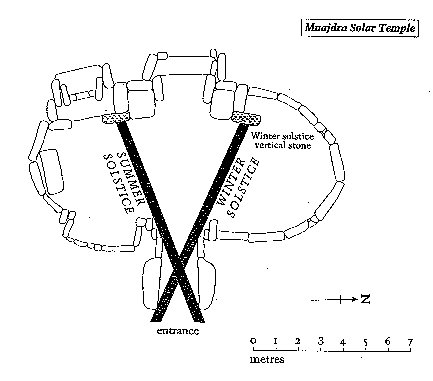
Marija Gimbutas: 'To
sleep within the
Goddess's womb was
to die and to come
to life anew'. In a
system of
reincarnation the
old one must die in
order to be reborn,
of course. At
midsummer Sun comes
to a standstill, and
this must therefore
be an occasion when
the 'flame of life'
had to be
transported into a
new body. |
and ψ Sagittarii,
through which
the ecliptic path of the Sun
and the other planets moved
towards the Tail of the
Goat:
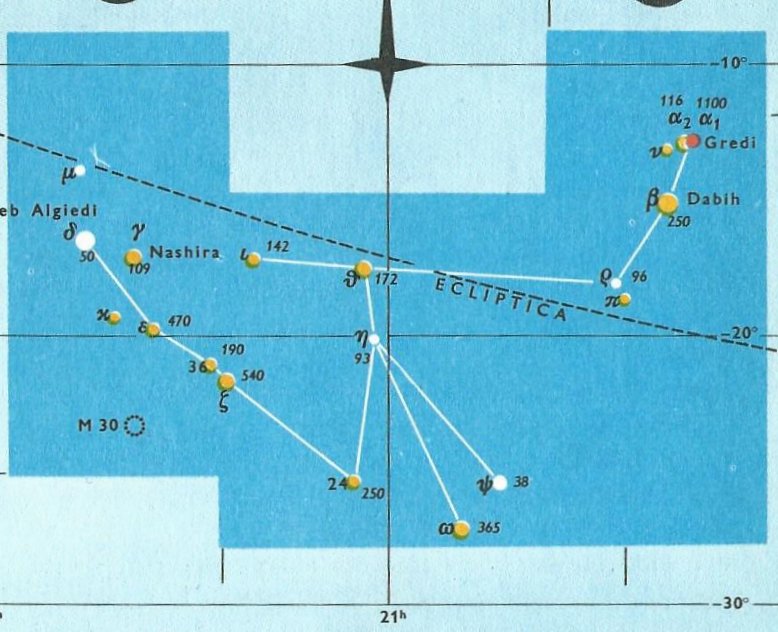
And, as we remember, the
Goat was at the beginning
and Virgo at the end of the
path of the Sun - which went
in the opposite direction
compared to that of the
precession:
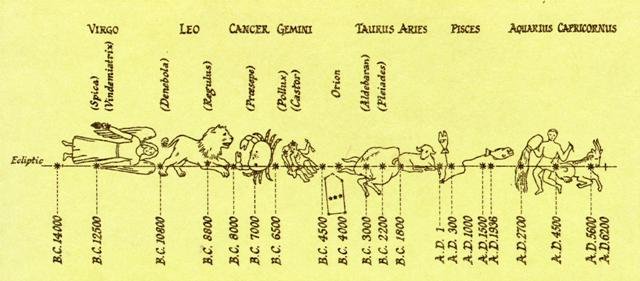
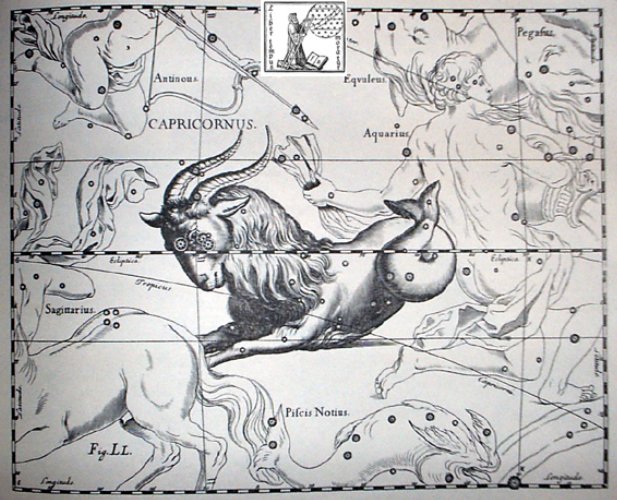
... in the Gregorian calendar day 65 is March 6, and in the
next evening AD 2024 we have a prediction from Cartes du
Ciel that Mars will be visible immediately after having left
ι Capricorni, also denoted 32 Capricorni. On the
other side of the year was the Nose of
the Lion :
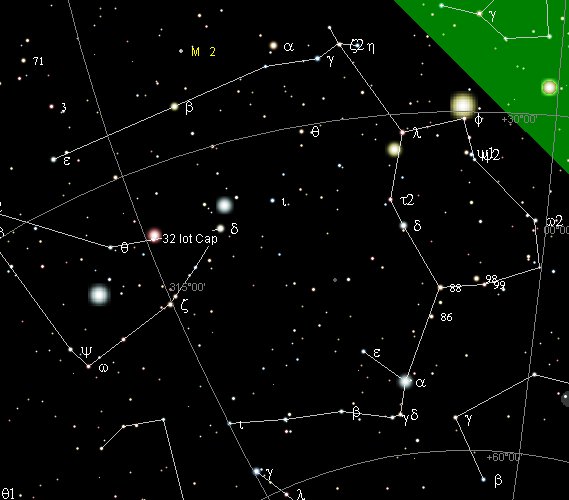
And 14 nights earlier, in
the evening of February 20
(51) AD 2024, the planet
Mars will, according to
Cartes du Ciel, be observed
together with Venus on his
way to enter into the figure
of the Goat:.
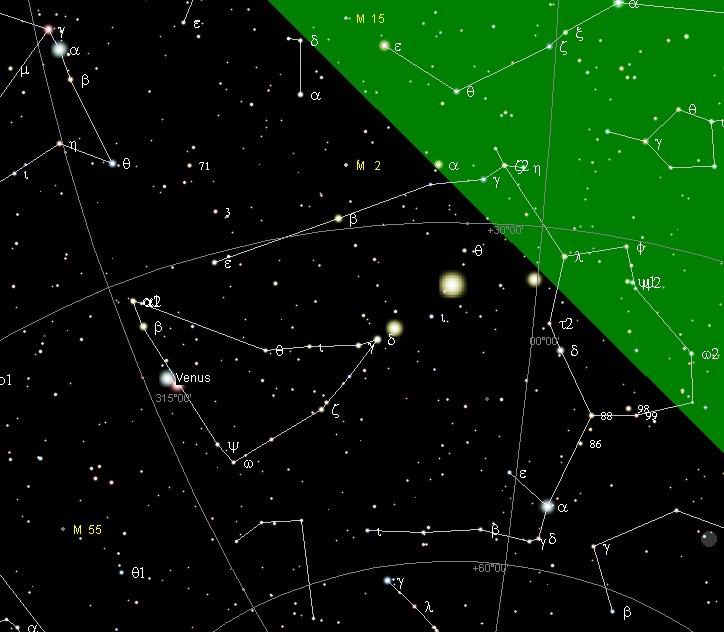

Another way to look at it is to explain
the 6 sleeping mats as the
distance from June 24 (the
Day of St John) to June 30
(Sirius).
But maybe this is more or
less the same
explanation, because when
the Sun came earlier and
earlier in the year due to
the precession the same must be true for
Sirius.
... The
Sothic cycle was based on
what is referred to in
technical jargon as 'the
periodic return of the
heliacal rising of Sirius',
which is the first
appearance of this star
after a seasonal absence,
rising at dawn just ahead of
the sun in the eastern
portion of the sky. In the
case of Sirius the interval
between one such rising and
the next amounts to
exactly 365.25 days - a
mathematically harmonious
figure, uncomplicated by
further decimal points,
which is just twelve minutes
longer than the duration of
the solar year
*101 (June 30) + *64
= *165 (Alkes), and after an
addition with 16 late at
night mornings of
invisibility we
will have *165 + *16 = *181
(September 18 = September 2
+ 16).
The position of Sirius as
observed against the
background of the fixed
stars was changing over time
due to the precession. But
Sirius
stood still at day 181,
while the fixed stars
apparently glided later and
later in
the Sun year.
The
2nd day of Hora Nui (→
September 2, 245, *165) had
been the place of Sirius in
the Golden Era of the Bull.
|
 |
*6 |
 |
*58
|
 |
*6
|
 |
|
Ga2-1 (31) |
Ga2-7 (37) |
Ga4-12 (95) |
Ga4-18
(101) |
|
St John's Day |
SIRIUS (*101) |
ST JOHN'S DAY |
ALKES (*165) |
|
June 24 (175) |
June 30 (181) |
Aug 27 (239) |
Sept 2 (245) |
|
Christmas Eve |
Φ SAGITTARII
(364) |
SITULA ('342) |
FUM AL SAMAKAH
(*348) |
Albali (ε
Aquarii, *314) + *16
= *330
→ 2 * 165 (Alkes).
And 330 (NOVEMBER
26, *250 = *314 - *64) +
6 = 336 (DECEMBER 2,
*256
→ 16 * 16) = 4 *
84
→ 384 + 100.
Whenever one of the 4
cardinal points of the
Sun was shifted all the
other were bound to
change simultaneously too.

|








.jpg)









